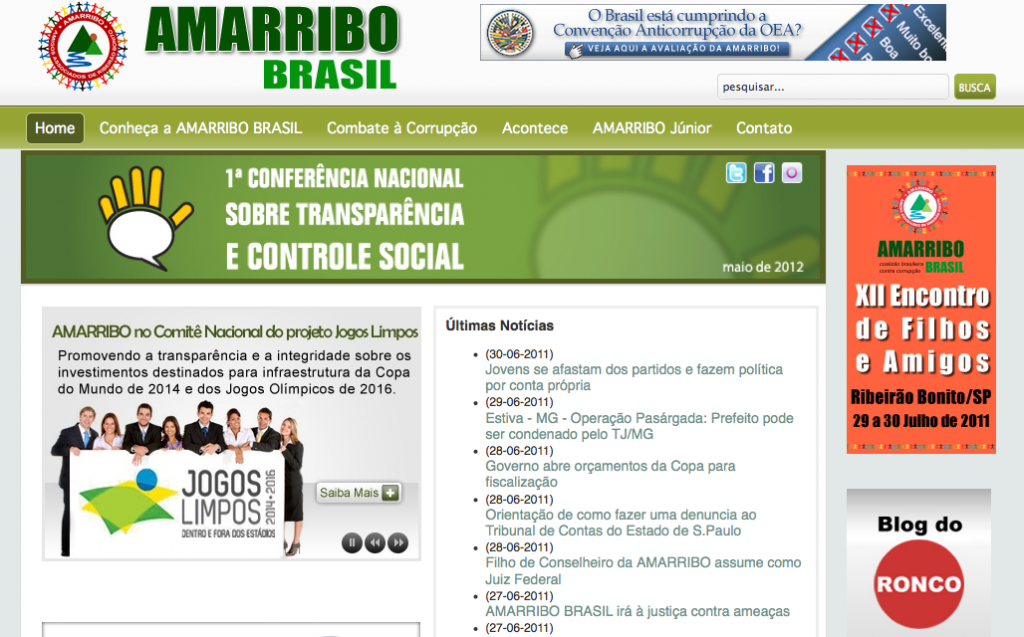This was a very special week for the project Friends of Januária and we're back to tell you about the last achievements we had.
First, we are very glad to announce that the project has a new partner: the human rights NGO Article 19 South America. Internationally known for it's work in defense of the rights to freedom of expression and access to information, thay are supporting the project and will participate in one of it's workshops.
The contact with Article 19 started in April, together with other contacts we made with NGOs commited with the right to access to information and the fight against corruption. We talked to several organizations that showed us their interest in the project and there will to support us in some way. In the beggining of May we had a very important meeting with Article 19 to talk more about the project and last week they gave us their response. This was a great step to the sustentability of the project. We are very glad and thankful to our friends of Article 19 and we are sure that together we will make a great job!
During this week we also had an important meeting with our correspondent in Januária, the investigative journalist Fábio Oliva, (now officially) one of the coordinators of the project. Together with him we started having a lot of ideas of practical activities and exercises to do during the workshops. Oliva is a very experienced journalist and activist against corruption. His participation in this project will be essential to it success! Soon we will get together again to discuss more about the topics of the course.
Fábio is also in touch with local partners in Januária, including a school that might cooperate with a classroom with computers where the workshops could occur. We are now in touch with them so we can define a final schedule for the meetings.
As you can see, we have a lot of reasons to celebrate this week! Thank you all who were wishing us luck!!
Soon we will be back with more news!

